On the 2008 De Anza College Outdoor Club winter camping trip to Yosemite valley it snowed on and off all weekend. Friday night the campers heard coyotes singing all around them at a little after ten p.m. and they heard avalanches coming down off the cliffs all night both nights.
The club insists on good rain gear, (jacket and pants) for all trip participants, not just a rain poncho. When heavy snow builds up in trees it falls without warning often in a big thuding plop or a huge cloud of snow dust that put out the flame on a camp stove the last morning of the trip – twice, even though the stove was at least ten feet from the tree shedding its snow load.
A poncho will not protect you from this:
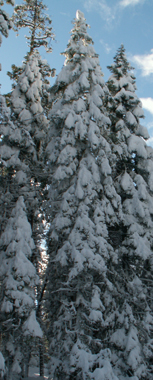
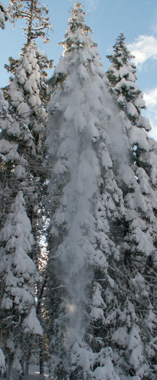
Snow plops from the trees are the reason the students pitched their tents in the open rather than under trees, as the thudding plops can unhook or even bend tent poles. But out in the open the snow is deeper.
To pitch a tent in deep snow, first have friends walk back and forth with you around the area you want to pitch the tent at to compact and flatten the snow and be sure to walk paths from tents to campfire, bearboxes, road/restroom etc. for easier walking after dark. After the tent is pitched you can dig a small trench at the front of the tent so you can sit at the tent floor level and have your feet below to put on boots more easily. (Mary Ann Osburn and Colin Simon putting on boots)
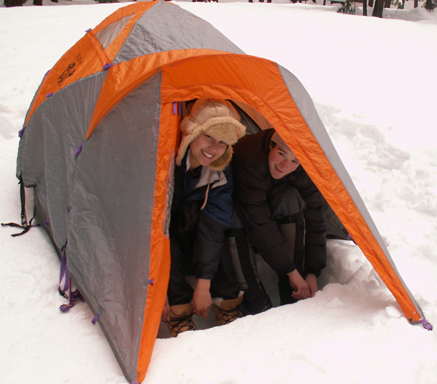
________________________________________________________
On Saturday, five of the group went on the Ranger led snowshoe walk at Badger Pass, which ended with a snowshoe run. (Photos of and by Monica Colmenares and Richard Neimrec)
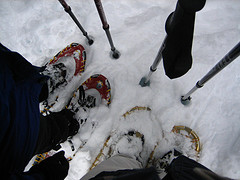
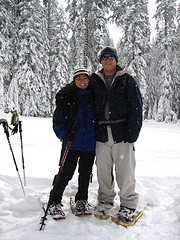
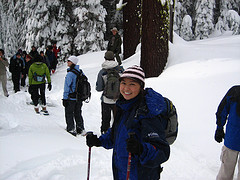
The ranger described the subniveal space between the surface of the ground and the snow, and the creatures that live and travel there.
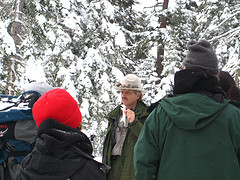
At the end of the walk … a run.
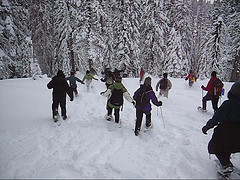
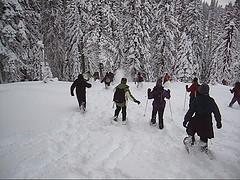
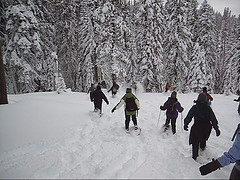
________________________________________________________
Below, the tent shown above on Saturday morning and the same tent and same pathway Sunday morning after what a Ranger told us had been 2 feet of snowfall:
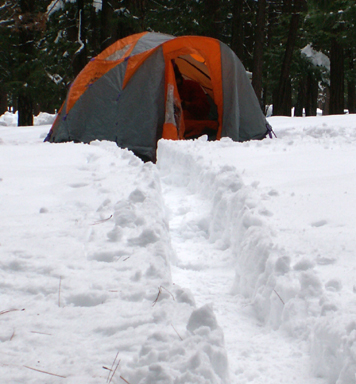
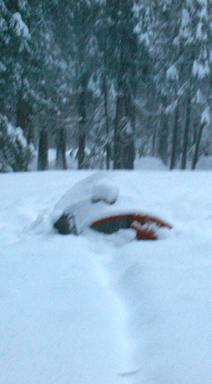
Opening the tent door to take a peek at the situation knocks a little snow off the tent:
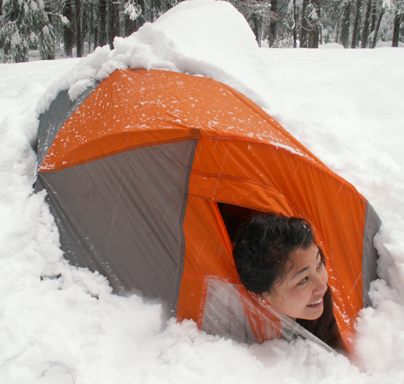
As more snow falls, trying to shovel out the tent:
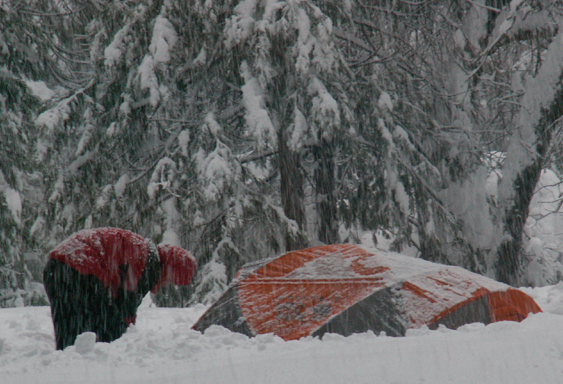
Cars need to have snow cleared from them. The main roads were plowed but not the campground loop road, so you need to not only shovel out a path to the road from the campsite parking space, but hope you have enough clearance or a friend who can drive around the road a few times to flatten the snow enough to get out.
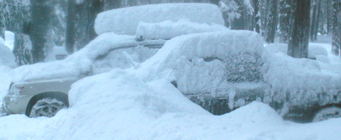
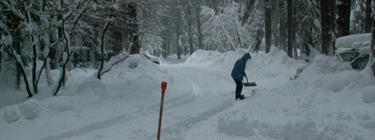
Upon arrival at the campsite snow needed to be cleared from the picnic table and out of the firepit, so it was a smart idea to set up a dining canopy and put a tarp over the firepit when the work was done. But it was not smart to leave the canopy up overnight in the heavy snow:
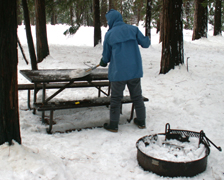
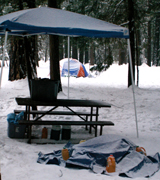
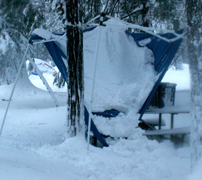
_______________________________________________________
- Those rumors about the dining conditions on club winter trips are unfounded.
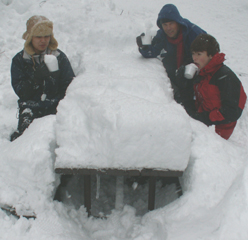
The reality is that 17 trip members ended the trip at the Ahwahnee hotel brunch:
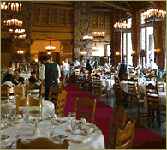
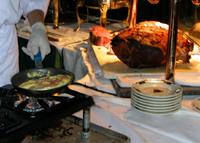




(Dining room photo courtesy of the park concessioneer Delaware North.)
_______________________________________________________
A larger copy of this photo is at:
Yosemite Falls view in February snow and other seasons
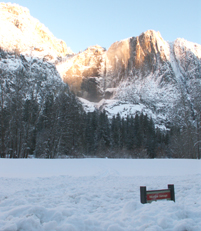
_______________________________________________________
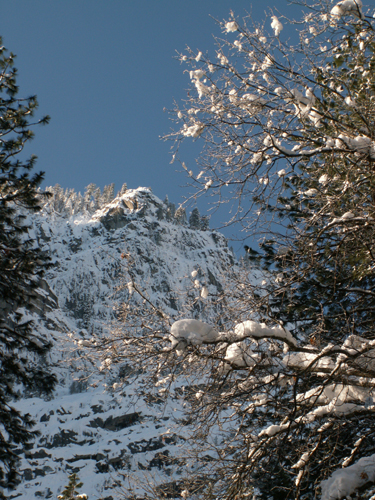
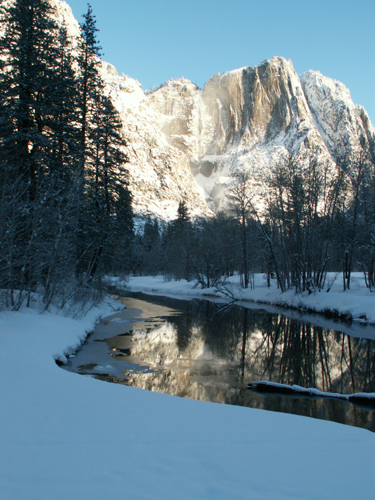
More photos expected from students of a bobcat six of us saw just outside the Ahwahnee Hotel.
_______________________________________________________
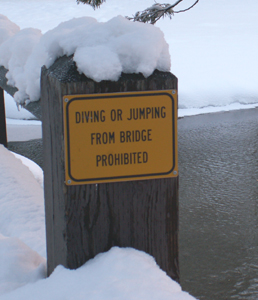
How can people possibly stay warm and comfortable camping in this kind of weather?
The main trip info page, including possible answers to the question,
How many people can you fit in an eight person tent?
is at: Snow Camp